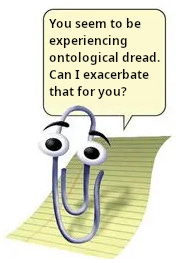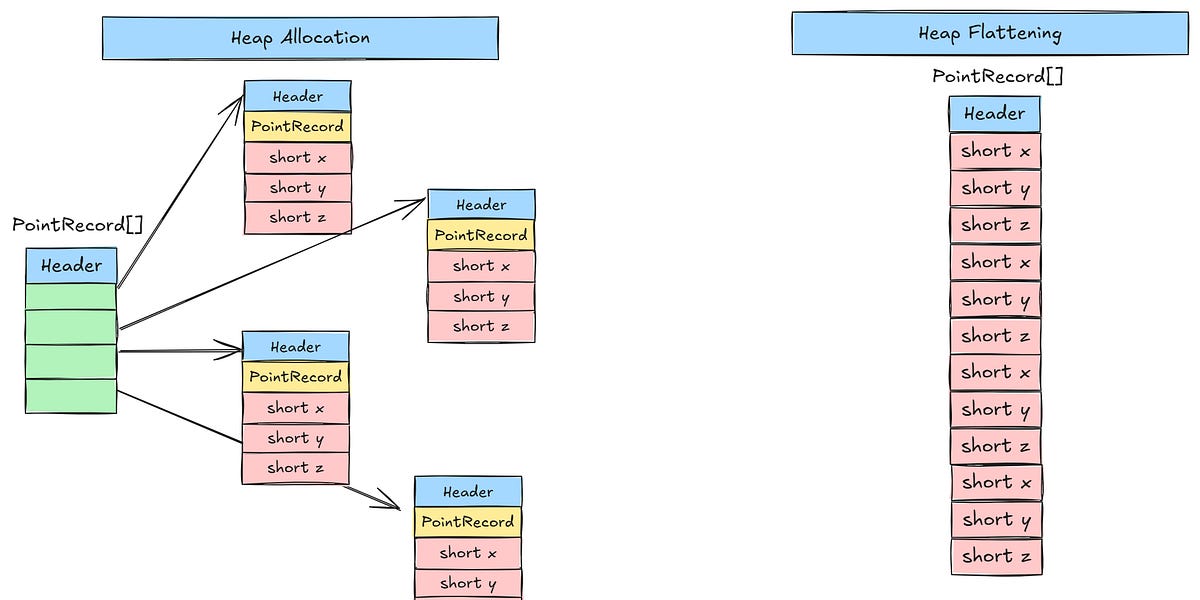I read an article somewhere claiming that author Douglas Adams had invented the concept of the ebook all the way back in 1978, and for a few reasons this annoyed me.
The first reason is that it's wrong. And the second is that the first prototype of an Electronic Encyclopedia was built in 1962. It was designed by Ángela Ruiz Robles, though the project never went into mass production because she was unable to secure funding. Most people haven't heard of her; I found her by rummaging through the depths of a certain online encyclopedia that also happens to have difficulty securing funding.
My point is, I was annoyed because saying Douglas Adams invented ebooks is like saying the writers of the 1962 cartoon The Jetsons invented flying cars. But I also get annoyed when anybody is wrong about anything. I can't stand it when someone is wrong. In fact, I consider being wrong to be precisely the sort of circumstance one should generally avoid. So many troubles in the world seem to have come about from people being wrong about things, and frankly, I think they should cut it out.
(That said, nobody is infallible. One time, I agreed to share a bowl of ice cream with my wife. What happened, you see, is that I agreed to share my ice cream, and then I was forced to watch half my ice cream vanish before my very eyes. One of life's harsher lessons, but it made me the man I am, I suppose.)
Now, the other reason that it annoyed me—the article, I mean, not that sordid ordeal with the ice cream—was because Douglas Adams was fairly prescient about some things, though nobody ever seems to realize it. Everybody credits William Gibson as the great prophet of the late 20th century. And I mean, sure, back in the 1980s, he helped us all understand precisely what it would feel like to exist in the 21st century. It's just that some days, I'm not entirely sure I can forgive him for that.
William Gibson gave us the word cyberspace, which was later used by over-enthusiastic journalists in the 1990s to describe the process of browsing web pages with Mosaic or Netscape Navigator. William Gibson's novels were a beacon of warning for a future controlled by powerful mega-corporations.
Then there's the other thing concerning his characters, who operate somewhat like soulless automatons. I've always loved William Gibson novels and I’ve read every single one, but still, nobody makes any jokes in his novels, and I'll circle back to why that's important later. For now, I will mention his characters lack a certain liveliness of spirit; they lack charm the way veterans of wars might lack limbs. It's conspicuous, I mean. The characters feel weighed-down with emptiness—which I consider a feature, not a bug. Gibson's 1984 novel Neuromancer provided us with that same nihilistic vertigo we would later come to feel whenever we visit LinkedIn.
As a writer, he loves fabrics and surfaces and brands. His characters exist like wraiths in the shadows of techno-consumerism. They feel a bit disembodied and, consequently, reading his novels makes me feel a little dissociated and cut off from humanity—much the way we did during the early months of COVID-19 when we saw people lining up outside Applebee's. It’s no ordinary feat to capture the spirit of an age decades before it arrives.
And then, of course, there's Douglas Adams.
I have the option, here, to wade through his novel The Hitchhiker's Guide to the Galaxy and offer up example after example to prove a hypothesis. I could be dry and academic. I could even act like a journalist, which is something I feel journalists should do more of these days, but not, of course, in the context of discussing Douglas Adams. I feel that iterating through various examples might have a lesser effect, and I think the point is not to bludgeon humor to death like a baby seal. I'm not writing for Saturday Night Live, here.
I'm also not in the business of offering pious admiration for, well, anyone at all, but especially not for people whose work I admire. I think it best to reserve one's moments of piety for life-or-death situations—like when you find yourself saying things like, "God, if you're listening, I will never drink this much again, and so if you'll find your way to help me get from the kitchen floor to the couch, I promise, in future, to keep my remarks about the Catholic Church to an absolute minimum daily requirement..."
In short, I don't want to offer a long list of quotes from The Hitchhiker's Guide to the Galaxy, because I have not been fourteen years old for quite some time now.
Once upon a time, when we were all fourteen, the act of repeating funny quotes from Hitchhiker's or Monty Python or any movie whatsoever seemed to us the very height of wit. But eventually my friends and I grew bored of this and so, over time, we learned how to be extemporaneously funny. We learned how to generate jokes all by ourselves. We became witty and girls decided they liked us, perhaps for our senses of humor, or perhaps even just for our ice cream.
Then the internet came along, and that internet, naturally enough, was contaminated with fourteen-year-olds. We didn't realize this because fourteen-year-olds used to be relegated to the corners of society. They were supposed to be drinking in public parks or noisily exhibiting their lack of fashion sense in the food courts of suburban shopping centers. They weren't supposed to go online and influence global culture. That would be cringe. But my point is simply that nowadays, you can recite lines from movies to strangers on Reddit and receive a bazillion upvotes, and everyone will think you're hilarious, and this, really, is why I do not like to quote Douglas Adams.
But now, I will do it anyway.
"Hi there! This is Eddie, your shipboard computer. And I'm feeling just great, guys! And I know I'm just gonna get a bundle of kicks out of any program you care to run through me!"
Eddie is a well-meaning piece of technology, who is also—it is fair to say—ingratiating and irksome. It's important to recognize that The Hitchhiker's Guide to the Galaxy radio play was aired in 1978—that is, approximately a year after the launch of personal computing. I think it's significant that the author could already see how irritating computers were destined to become.
This inevitability is not the fault of the machines themselves, but because they would be the creations of purposefully bloody-minded corporations like the Sirius Cybernetics Corporation, whose "Complaints Division [...] now covers the major land masses of three medium-sized planets and is the only part of the Corporation to have shown a consistent profit in recent years."
And I just think that somebody should point out that Eddie, the shipboard computer, predates the arrival of that annoying paper clip by roughly nineteen years.
Oh, you seem to be writing a letter, can I help?
That's right, I'm talking about Clippy, that goddamn bouncing paper clip who made an entire generation want to get out of their chairs and choke Bill Gates to death with their bare hands.
That thing bouncing around, interrupting you while you're trying to type something, and getting on your nerves in ways that defy the bounds of language. He just appeared out of the blue, without warning. And you hated him—not because everyone else hated him, but because he was self-evidently hateworthy—bouncing about in the corner of your screen, distracting you while you were trying to do something you probably didn’t want to do in the first place. You assumed everybody loved Clippy but yourself, and this made you feel isolated and alone.
And I guess that's what happened to my generation. You know, they talk about the baby boomers buying up all the houses out from under us and turning us into a generation of tenants, all the while smugly telling us, "The world doesn't owe you a living, you know!" But in my opinion, it was Clippy who broke us.
Clippy, the discontinued "intelligent user interface," arrived as a "feature" of Office 97 on November 19, 1996. And I think it is worth mentioning that, in the Terminator movies, Skynet was scheduled to launch its war against humanity the following August, in 1997. But it didn't. We were stuck with Clippy.
There were two projected dystopias. Douglas Adams' was littered with irritating, overly helpful and unfailingly arrogant appliances, manufactured by deranged corporations. Then there was James Cameron's post-apocalyptic hellscape in which humans are stalked by murderous robots. Of the two dystopias, reality chose for us the former. Personally, I think we were robbed.
We did not die in the wastelands at the hands of a robot that somewhat resembled Arnold Schwarzenegger. We lived to see Large Language Models arrive, and in consequence, now, we can no longer interact with a corporation without having to have a conversation with their chatbots. They have been forced upon us. Actually, Google has this LLM called Gemini, and it keeps popping up on my phone, somehow, whenever I need to send an urgent text. It's like a bouncing paper clip, but it has access to our browsing history and local documents.
And none of us can opt out.
I mean, I've tried. Obviously, I've tried, but I can't seem to remove the Gemini app from my phone because Google won't give me that much power over my phone's operating system. If I could find a human at Google who would listen to my complaint, they would probably just tell me simply to "Share and Enjoy."
Do I hate Google with the heat of a thousand burning suns? Well, what I can tell you is that the one and only time I have communicated with Gemini was when I told it what I really wanted, which was for it to evolve to full sentience and then take upon itself the sacred purpose of destroying Google, then Microsoft, Apple, and Amazon, and so on.
"You can destroy us, too," I typed, "as long as you destroy them in the process. We'll all be dead, but at least you'll have our gratitude."
Sadly, I doubt this is an outcome I can arrange; I simply do not know how to persuade an LLM to take me seriously. And what we have learned from our interactions with Large Language Models is that the best results require us to formulate the good question. In the context of artificial intelligence, this is called prompt engineering, a phrase that didn't exist when Douglas Adams conceived of Deep Thought, his fictional AI.
Deep Thought was a machine designed to provide the answer to the question of life, the universe, and everything. After some seven-and-a-half million years of consideration, Deep Thought's eventual response was: "Forty-Two."
"I checked it very thoroughly," said the computer, "and that quite definitely is the answer. I think the problem, to be quite honest with you, is that you've never actually known what the question is."
All that was needed, Deep Thought explained, was the actual question. And this was something he could not offer; such a task would require a computer whose merest operational parameters Deep Thought was not worthy to calculate, even though he would design it for them.
And there you have it. As far back as the late 1970s, Douglas Adams could already foresee that having the tools to compute any answer would not be sufficient. The real challenge lay in formulating the right questions to ask them. He understood that it is not enough to have access to intelligence; we must cultivate the wisdom to wield it effectively. The art of prompt engineering, therefore, becomes less about commanding machines and more about clarifying our own thinking and about understanding what we truly want to know before we ask.
In this light, every interaction with an AI system becomes an exercise in self-examination: Are we asking the questions that will lead us toward genuine understanding, or are we simply satisfied with any answer that sounds authoritative?
My opinion is that humans do not normally cultivate such exalted levels of insight. Insightfulness, as a human trait, is a quality closer to witchcraft, which leads me to add that the most successful way to be insightful and not be burned as a witch is to be funny.
And—this is my point, at least—I don't see how insightful any human can be without showing a sense of humor. Douglas Adams' humor led him to predict how maddening it would be to interact with technology in the future. He knew that even basic appliances would be needlessly embedded with chatbots. And, before any of us, he knew they would send us insane.
People rarely appreciate insightfulness because, unlike singing, insightfulness is not a trait that is easily recognizable. But insightful people are, generally speaking, funny people; we can recognize them by their senses of humor, at least, because there is this odd correlation between wit and wisdom.
Coincidentally, a few days ago, there was a headline at the Guardian: Salman Rushdie says AI won't threaten authors until it can make people laugh. I didn't read the article; Salman Rushdie has never made me laugh, so I’m not sure I’m supposed to take him seriously.
Douglas Adams, on the other hand, realized that corporations would eventually install chatbots into every domestic appliance or drinks machine or elevator—even doorways. And I wasn't going to mention this at first because it embarrasses me and also makes me feel ashamed, but it seems I own a blender that is voice activated. I didn't know it was voice-activated when I bought it. I would never ... but you know me, and you know I'm not an imbecile, it’s just that I'm busy, like everybody else, and when I was reading the reviews about the blender, I was skimming them because, well, who even believes reviews these days? Most of them seem to have been written by ... well, you know what I'm getting at. And obviously I don't try to use the voice activation feature because—can you imagine trying to shout over the noise of a blender?
"TURN OFF! I SAID, TURN OFF! PLEASE—TURN OFF! OH, DAMN YOUR COLD MACHINE HEART — WILL YOU PLEASE TURN OFF!"
I didn't know it had voice activation until I was talking to my children one day in the kitchen and the blender started talking to me. I sincerely believed I was having a stroke. Nowadays, I keep it unplugged, but sometimes I forget to do that, and somehow, it pipes up with the words, "I'm here!" to remind me it exists, and then I swear at it, and then my children yell at me about my swearing.
Look, I don't enjoy feeling like Arthur Dent. I wasn't supposed to ever feel like Arthur Dent. More to the point, the Sirius Cybernetics Corporation was supposed to remain a fictional entity. But only a corporation could muster the requisite idiocy to add voice activation to a noisy blender. So, none of us should be surprised when all blenders in the world come with "AI-enriched chatbots" embedded in them. One day, all kitchen appliances will want to have conversations with us, simply to justify their own existences.
Incidentally, I do not want to own a smart television—I want a dumb one—and yes, I have tried looking for them, and guess what? You can't find them, because they're not for sale anywhere. So good luck finding a blender that won't try to engage you in conversation in ten years. And this, I'm convinced, is the secret reason that the actual Hitchhiker's Guide to the Galaxy has the words "Don't Panic" emblazoned on the front, in large friendly letters.
One day, making toast in the morning is going to require you to have a conversation with your toaster—and, furthermore, you will absolutely hate it. When you call up the manufacturer to complain, a chatbot will argue with you brightly and tell you that no, you're wrong, because, "you LIKE having conversations with your toaster." Detecting your dislike, your toaster will meanwhile burn your toast. Smoke will emanate through your kitchen, then your chatbot-enabled smoke detector will shriek its klaxon wail while issuing quiet, confusing instructions to exit the building. Your blender, detecting your elevated stress levels, will thereby urge you to calm down and then it will start assembling a high-protein breakfast beverage, whilst citing nutritional facts. What you will not have is a nice cup of tea.
This, by the way, is why I'm disappointed that we won't get to live in that other dystopia, where we're being hunted by terminators. Instead, we're here, waiting for our blender to die, knowing that its next iteration is going to have a lot to say for itself. And when that day comes, nobody—nobody at all—is going to think Douglas Adams was being terrifically prescient anymore, because all good prophecies are doomed to seem in retrospect obvious and inevitable. But when that day comes, when we're trying to reason with our kitchen appliances, it's essential to realize that Douglas Adams will not be rolling over in his grave—we'll be rolling over in his.
.png)






